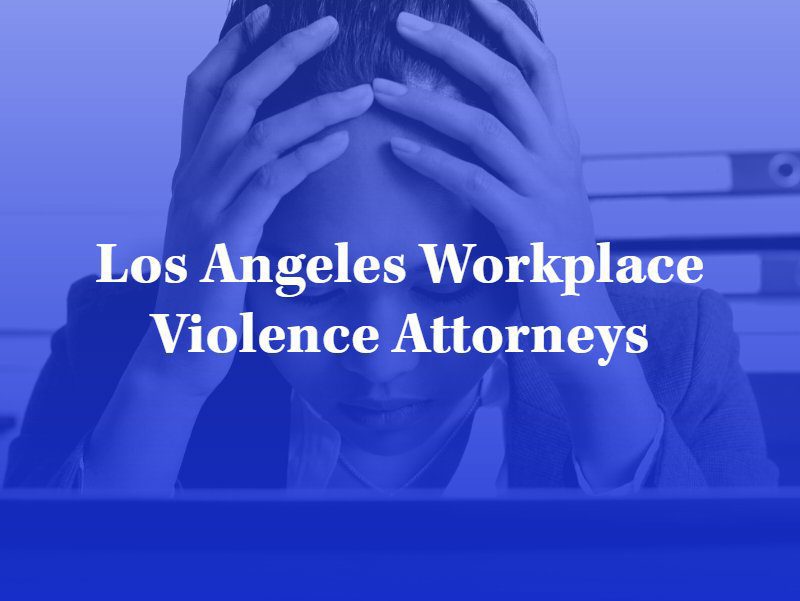Los Angeles Workplace Violence Attorneys
Threatening bodily injury to another individual is illegal—and this is especially true in the workplace. All employees have the right to a work environment free from discrimination, harassment, and any kind of intimidation or threatening behavior. If an employer or a coworker threatens violence against an employee, he or she may be able to speak to a Los Angeles workplace violence lawyer to file a lawsuit against the responsible parties.
Government studies show that there are an estimated two million threats of violence and incidents of violence in American workplaces each year. These are not only dangerous, but they cost American businesses more than $36 billion per year. No one should have to deal with threats of violence at work—and those who are unfortunate enough to encounter such behavior need to know their rights and options.

Causes of Violence in the Workplace
Non-employees, such as criminals intending to rob a business, commit most incidents of violence in American workplaces. Employees of businesses that regularly interact with the public are most susceptible to outside forces that may threaten or violently interact with them. However, employees or former employees perpetrate numerous incidents of workplace violence.
It may be relatively easy to discern the motive for some former employees to commit violent acts in their former workplaces. Some may feel that they are exacting revenge for perceived slights or mistreatment. Others may have mental illnesses that lead to violent responses when triggered. For the most part, workplace violence committed by employees or former employees is relatively foreseeable. Coworkers and supervisors see these individuals on a daily basis and notice aberrant behaviors. Some warning signs that may indicate an employee intends to commit violence at work (or that an employee poses a violent threat to his or her coworkers) include:
- Signs or evidence of substance abuse
- Sudden frequent absences
- Displays of poor impulse control
- Being verbally abusive toward coworkers or other parties who interact with the employee on a regular basis
- Harassment via email or phone
- Overreaction to minor changes in the workplace
- General belligerence
- Insubordination
- Displaying signs of paranoia
- Overt interest in or access to firearms
- An apparent fixation on violence or a history of violent activity
- “Passing the buck,” or refusing to accept responsibility for actions
- Displays of suicidal thoughts or regular comments about suicide
- Unpredictable mood swings
- A propensity for domestic problems, such as frequently talking about family disputes, financial issues, or other problems at home
Take note of these indicators and take steps to avoid a possible act of violence. Discuss your concerns with a supervisor in private to see if a solution is possible. If a coworker threatens you with violence, report it immediately and take steps to protect yourself. As far as the law is concerned, a threat of violence is itself a violent act, and individuals who make such threats must be held accountable for creating a violent or hostile work environment.
Filing a Workplace Violence Claim in Los Angeles
Most companies have internal policies for dealing with workplace disputes, so you should try and work with those procedures as soon as you notice any worrisome conduct or if someone threatens you with violence. The Occupational Safety and Health Administration (OSHA) guarantees workers the right to a safe and hazard-free environment, and your employer must take adequate steps to ensure your safety at work.
If you do find yourself in need of an experienced and skilled employment attorney in Los Angeles, reach out to the team of workplace violence attorneys at Mathew & George. Our firm is committed our clients’ rights, and we fight tenaciously to guarantee fair outcomes in every case we take. We keep a small caseload to ensure we give every client and every case our full attention and all resources at our disposal. Set up a free, no-obligation consultation about your case today.
